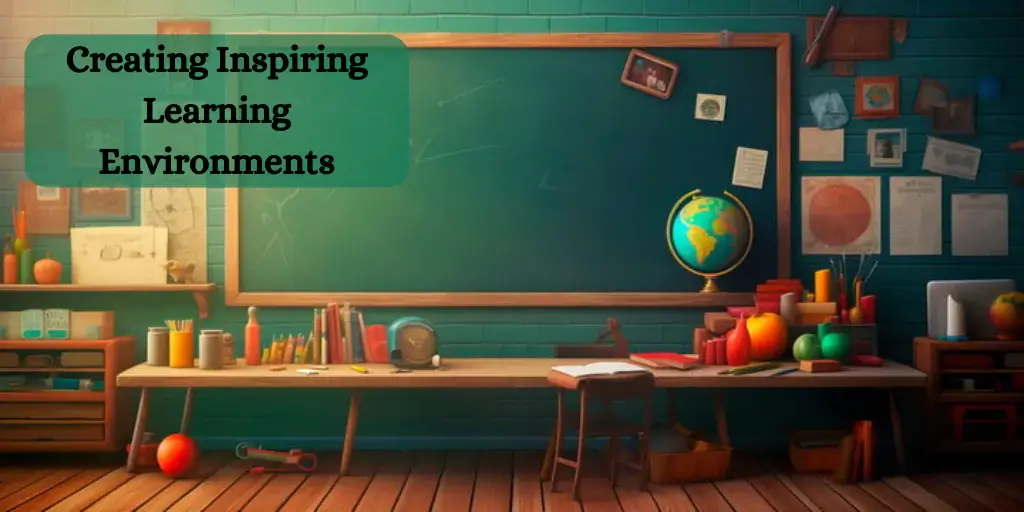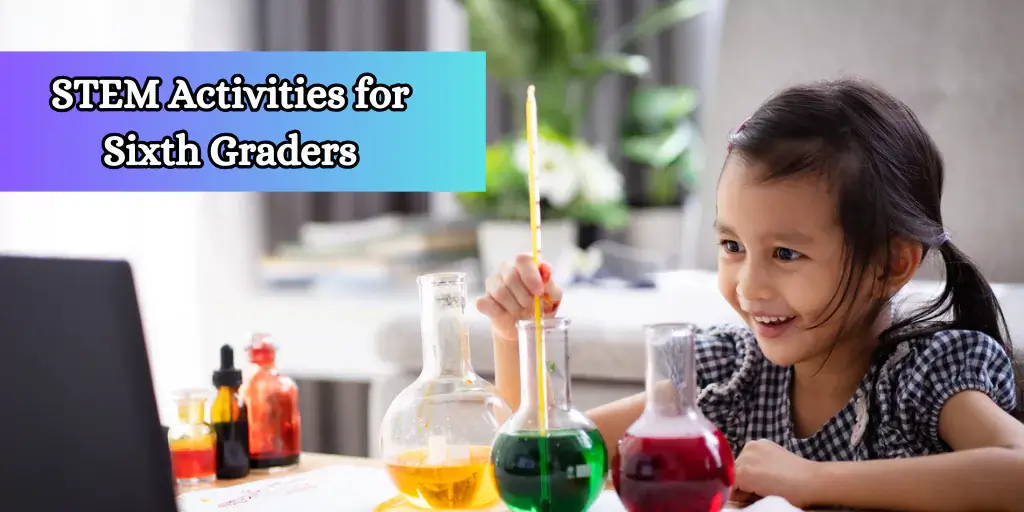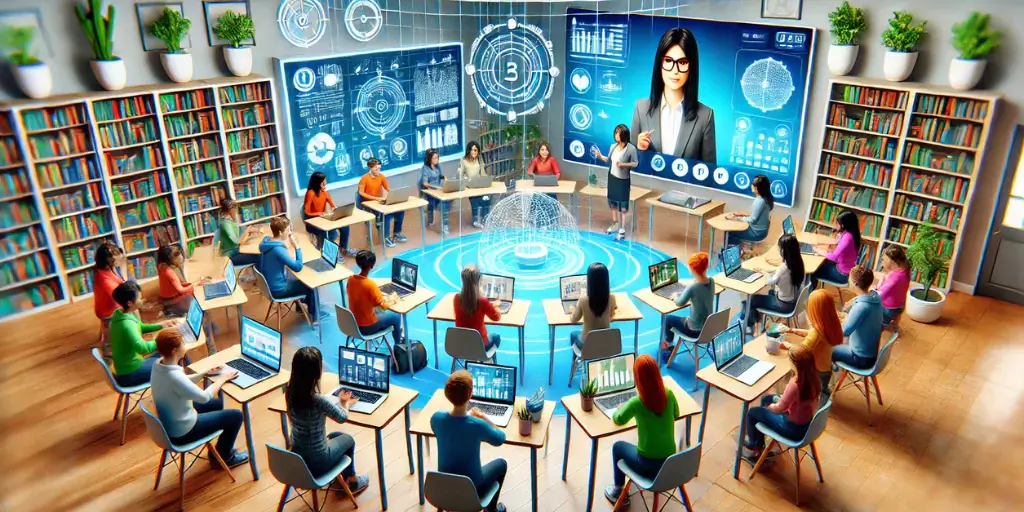Recently updated on December 9th, 2024 at 10:29 pm
Creating a learning environment that promotes student success is not easy. Students’ learning experiences have changed from innovative classrooms to online platforms. In this blog post, we look at the top ten learning environments that not only promote academic growth but also encourage an interest in lifelong learning.
1. Interactive Classrooms with Smart Technology:

Nowadays, every student wants technology. Interactive classrooms with smart technology utilize digital whiteboards, tablets, and learning apps to create dynamic, engaging lessons, allowing teachers and students to collaborate and interact with content in real time.
Also See: How children’s are interactive with Mastering the Virtual Classroom
2. Online Learning Platforms with Gamification:

Gamification in online learning platforms uses game-like aspects such as points, levels, and awards to make the learning experience more interesting and inspire students to interact through educational content.
3. Library and Reading Corners:

Library and reading corners are comfortable, quiet locations designed to encourage students’ love of reading and exploration by giving them access to a wide range of books and a serene environment in which to immerse themselves in literature.
4. Outdoor Learning Spaces:

Outdoor learning spaces allow students to interact with nature while studying, resulting in a dynamic setting in which hands-on activities and fresh air promote focus, creativity, and well-being.
5. Collaborative Group Study Areas:

Collaborative group study rooms are designated spaces that promote teamwork and open discussion. They allow students to exchange ideas, solve problems collaboratively, and work on projects in an engaging and supportive environment.
6. Virtual Reality (VR) Labs:

Virtual Reality (VR) labs are immersive settings outfitted with VR technology that allows users to explore simulated worlds, perform interactive experiments, and receive hands-on experience in subjects such as science, engineering, and art from a different perspective.
7. Art and Creativity Studios:

Students are inspired to think creatively and holistically when they are in environments that support artistic expression and creativity, like art studios. Art and creativity studios are lively places created to stimulate creativity and self-expression. They offer artists and creators the resources, equipment, and group setting to experiment, explore, and realize their ideas.
8. STEM Labs for Hands-On Science and Technology Learning:

STEM labs offer students hands-on experiences in subjects such as robotics, engineering, and biology, encouraging critical thinking and problem-solving skills through real-world experimentation and creativity.
9. Career Development Centers:

Career development centres provide tools, guidance, and training to assist individuals in exploring career alternatives, developing job-search skills, and preparing for the workforce, assuring their readiness to succeed in their chosen sectors.
10. Interactive Museum Exhibits:

Interactive museum exhibits involve visitors in hands-on activities, multimedia displays, and immersive experiences, allowing them to explore and learn about history, science, art, and culture engagingly and memorably.
Conclusion:
The most effective learning settings go beyond typical classroom design to accommodate students’ diverse requirements and preferences.
The goal of a modern STEM lab, a comfy reading room, or a virtual reality experience is to create locations that pique students’ curiosity, inspire teamwork, and ignite a lifelong love of learning.
As the educational landscape changes, these top ten learning environments serve as indicators, guiding students toward academic success and personal development.







开设Binance账户
September 5, 2024Can you be more specific about the content of your article? After reading it, I still have some doubts. Hope you can help me.